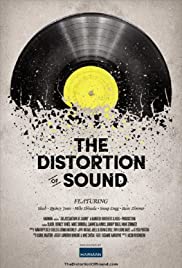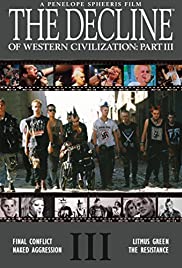
Even the biggest, fastest and fiercest predators start as babies. Baby sharks are cute, but they need to grow up fast because out of more than 500 species of sharks, not one parent sticks around to help raise them. Sharks are found in every ocean across the planet and have evolved in extraordinarily different ways to carry their young and give birth and for baby sharks to thrive.
You May Also Like

One of the greatest playwrights of the 20th century, Arthur Miller created such celebrated works as Death of a Salesman and The Crucible, which continue to move audiences around the world today. He also made headlines for being targeted by the House Un-American Activities Committee at the height of the McCarthy Era and entering into a tumultuous marriage with Hollywood icon Marilyn Monroe.
Told from the unique perspective of his daughter, filmmaker Rebecca Miller, Arthur Miller: Writer is an illuminating portrait that combines interviews spanning decades and a wealth of personal archival material, and provides new insights into Miller’s life as an artist and exploring his character in all its complexity.

Forced and child marriage is happening all across the U.S., legally. Three survivors – Nina, Sara, and Fraidy – take us on a journey into the depths of this human rights abuse hiding in plain sight.

When “The Electric Company” made its television debut in October 1971, it was instantly clear that it would fulfill its mission of helping struggling and reluctant readers. With a ground-breaking and diverse cast, clever writing, innovative direction, and an original visual and musical style, the show was so effective that by the end of its first season, nearly a quarter of all US schools were using the show in the classroom. Generations of young people learned to read from the series, making it one of the most important and enduring shows in American television history. “The Electric Company’s Greatest Hits and Bits” is a clip-filled celebration featuring many of the series’ most popular segments (with Bill Cosby, Morgan Freeman, Rita Moreno and the rest of the multi-talented Electric Company cast), and includes new interviews with cast members Jim Boyd, Judy Graubart, Skip Hinnant, Tom Lehrer, Rita Moreno, and Joan Rivers, as well as with series creator Joan Ganz Cooney.

‘Psychedelia’ is an hour-long documentary film about psychedelic drugs and their ability to induce mystical, or religious experiences. The film explores this relationship by chronicling their use in controlled research studies prior to the cultural upheaval of the 1960s, at a time when LSD was regarded as one of the most promising discoveries in the field of psychiatry.

Emilia Fox and Britain’s top criminologist, Professor David Wilson, cast new light on the Jack the Ripper case. Together, they examine the Ripper’s modus operandi using modern technology to recreate the murder sites to help understand the extraordinary risks the Ripper took to kill his victims. Using the Home Office Large Major Enquiry System (HOLMES)—a bespoke computer system used by the police to help detect patterns in criminal activity—and evidence uncovered within the investigation, results strongly indicate another woman was, in fact, the first Ripper victim.

The Land Beneath Our Feet follows a young Liberian man, uprooted by war, who returns from the USA with never-before-seen footage of Liberia’s past. The uncovered footage is embraced as a national treasure. Depicting a 1926 corporate land grab, it is also an explosive reminder of eroding land rights.

As the 60th anniversary of the assassination of President Kennedy approaches, this film uncovers the final proof of what happened that day in Dallas. By enhancing the famous Zapruder film, using new technology, we finally see what happened to J.F.K.

The last two decades have seen a striking decline in the quality of sound and listening experience. Compressed music, MP3s and streaming, have diminished the quality and flattened the emotion. Marketing gimmicks and convenience now take the place of excellence. The Distortion of Sound is an eye-opening exposé of the current state of sound starring Linkin Park, Slash, Quincy Jones and more. This documentary will open your ears and inspire you to reach for richer, more soul-stirring musical experiences.

Louis has gained access to Coalinga Mental Hospital in California, which houses more than 500 of the most disturbed criminals in America, convicted paedophiles. Most have already served lengthy prison sentences, but have been deemed unsafe for release. Instead, they have been sent here for an indefinite time. Spending time with those undergoing treatment, Louis wrestles with whether he can ever allow himself to believe men whose whole history is defined by deception and deceit.

The Decline of Western Civilization III is a 1998 documentary film directed by Penelope Spheeris that chronicles the gutter punk lifestyle of homeless teenagers. It is the third film of a trilogy by Spheeris depicting life in Los Angeles at various points in time. The first film dealt with the punk rock scene during 1980-1981. The second film covers the Los Angeles heavy metal movement of 1986-1988. The film involves hardcore street punks called “gutter punks” who take the anti-establishment message with extreme seriousness, and tune out society completely. Spheeris talks to homeless teenagers living on the street or squatting in abandoned buildings in Los Angeles, as well as an unstable mother, Los Angeles Police Department officer Gary Fredo, and a paralyzed youth living on a disability.

Through interviews with leading psychologists and scientists, Neurons to Nirvana explores the history of four powerful psychedelic substances (LSD, Psilocybin, MDMA and Ayahuasca) and their previously established medicinal potential. Strictly focusing on the science and medicinal properties of these drugs, Neurons to Nirvana looks into why our society has created such a social and political bias against even allowing research to continue the exploration of any possible positive effects they can present in treating some of today’s most challenging afflictions.

1964 was the year the Beatles came to America, Cassius Clay became Muhammad Ali, and three civil rights workers were murdered in Mississippi. It was the year when Berkeley students rose up in protest, African Americans fought back against injustice in Harlem, and Barry Goldwater’s conservative revolution took over the Republican Party. In myriad ways, 1964 was the year when Americans faced choices: between the liberalism of Lyndon Johnson or Barry Goldwater’s grassroots conservatism, between support for the civil rights movement or opposition to it, between an embrace of the emerging counterculture or a defense of traditional values.